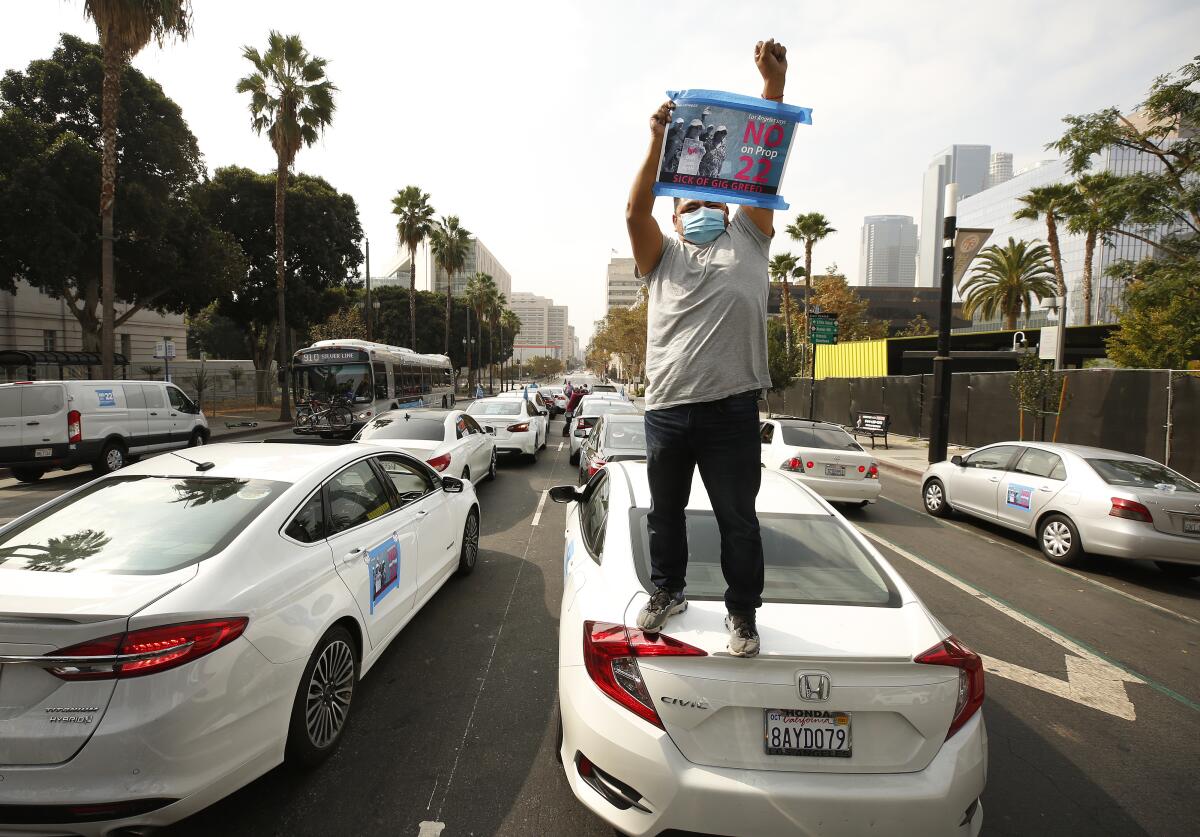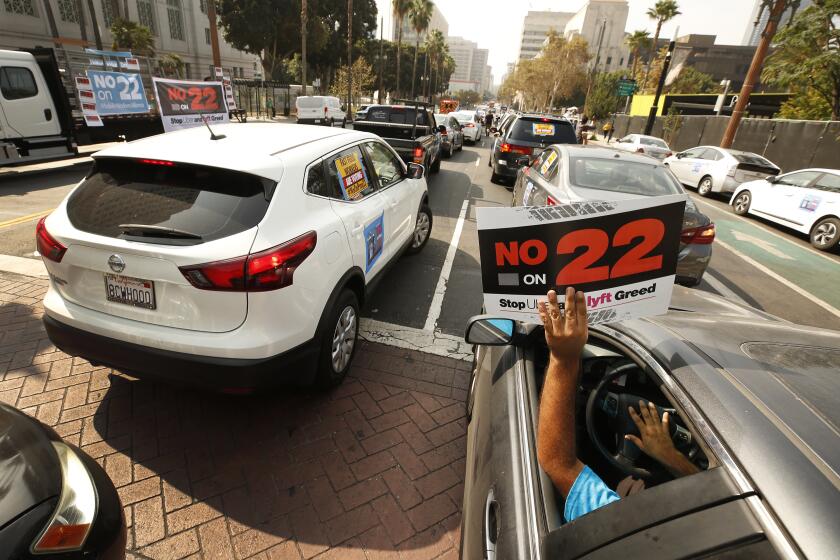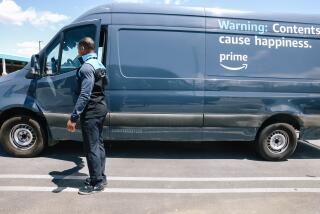Court says California regulation on Uber drivers is justified, but labor fight continues

A California law classifying Uber and other ride-hail and delivery drivers as employees rather than independent contractors is constitutional, the U.S. 9th Circuit Court of Appeals ruled Monday.
The effect of the decision on the companies’ operations and the broader gig economy in California wasn’t immediately clear, given ongoing litigation over a subsequent, voter-backed proposition that exempted app-based drivers from the employee classification.
Still, legal experts said the ruling is important, in part because it reaffirms the right of state lawmakers to regulate large industries and corporations without running afoul of the “equal protection” rights of such companies under the U.S. Constitution.
“From a long-term and legal perspective that’s not just about Uber, that’s the important takeaway here,” said Veena Dubal, a UC Irvine law professor who studies the intersection of law, labor and technology.
The decision on the law, known as Assembly Bill 5, could hold weight as other states, including Massachusetts, battle with Uber and similar companies over regulating driver pay and classification, said Ryan Wu, an attorney at Capstone Law.
California’s Supreme Court will hear arguments on the constitutionality of Proposition 22, which classified drivers working in the gig economy as independent contractors.
“This case gives legislators greater certainty that AB5-type legislation will survive constitutional challenges,” Wu said. “It puts them on firmer ground.”
The decision by an 11-judge 9th Circuit panel undoes one made last year by a three-judge panel of the same court. The smaller panel found that lawmakers had acted with animus toward Uber, Postmates and other ride-hail and delivery services by crafting a law that targeted them specifically and not other app-based companies.
In Monday’s opinion, Judge Jacqueline H. Nguyen wrote that this was not the case and that lawmakers had legitimate reasons for passing the 2019 law.
“There are plausible reasons for treating transportation and delivery referral companies differently from other types of referral companies, particularly when the legislature perceived transportation and delivery companies as the most significant perpetrators of the problem it sought to address — worker misclassification,” Nguyen wrote.
Attorneys for the companies said they were considering their legal options, including whether to appeal the decision to the U.S. Supreme Court.
But they downplayed the impact of the ruling on their operations in the state, given the passage in 2020 of Proposition 22, which allowed for their drivers to be classified as contractors.
Theane Evangelis, an attorney for the companies, said AB5 had “threatened to take away the flexible work opportunities of hundreds of thousands of Californians,” but voters had “rejected” such regulations with the proposition.
Noah Edwardsen, an Uber spokesperson, said Monday’s decision “does not change the status of the law in California in any way.”
Labor leaders took a different stance. Lorena Gonzalez, principal officer of the California Labor Federation and a former legislator who authored AB5, called Monday’s decision “a victory for all workers in the state, but especially the chronically misclassified workers in ride-share and delivery jobs.”
Gonzalez said the smaller panel’s decision last year “really put at risk all labor law,” and Monday’s ruling set that straight. She said AB5 continues to ensure that California workers are protected, not just at ride-hail companies but in many labor sectors.
Gonzalez also noted that the fate of Proposition 22 is unsettled, and it could be overturned by the California Supreme Court, which is weighing its legitimacy.
The offices of Gov. Gavin Newsom and Atty. Gen. Rob Bonta did not immediately respond to requests for comment Monday.
The ruling is the latest in a tangle of court decisions over who may be treated as an independent contractor and who is an employee.
AB5 has spurred numerous legal challenges from freelance workers and trucking companies that so far have been unsuccessful.
Proposition 22, a ballot measure passed by nearly 60% of state voters in 2020, exempts app-based transportation services such as Uber from AB5. Ride-hail companies poured huge amounts of money into campaigns backing the proposition.
Regardless of what happens with Proposition 22, Nguyen noted, the federal decision is relevant because the measure was not retroactive, and there are pending state claims against Uber and Postmates for violating AB5 prior to 2020 — including by misclassifying drivers.
A federal judge in California last year ruled that Grubhub misclassified a former delivery driver, Raef Lawson, as an independent contractor and therefore improperly denied him minimum-wage pay.
More to Read
Sign up for Essential California
The most important California stories and recommendations in your inbox every morning.
You may occasionally receive promotional content from the Los Angeles Times.













